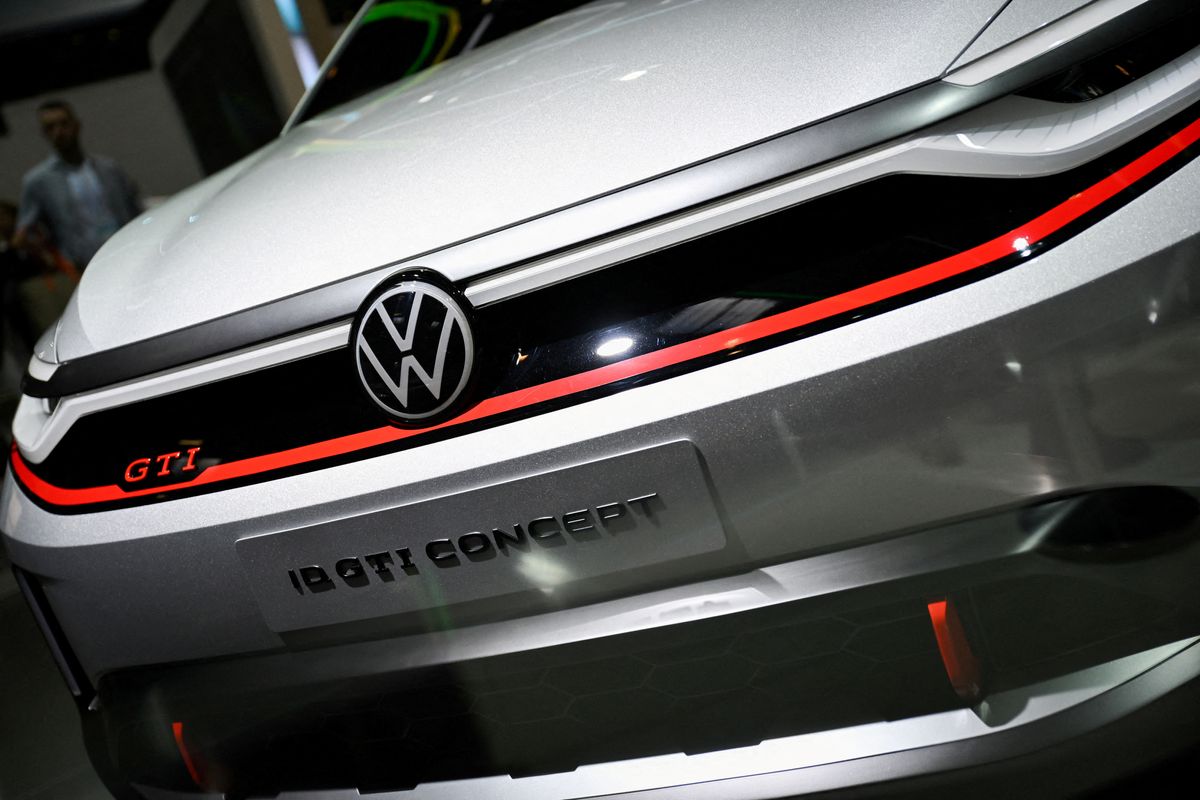Volkswagen's return to design amid competition from Chinese carmakers
When it comes to China, Volkswagen has been a major player in the country’s auto industry for a long time.

A few minutes every morning is all you need.
Stay up to date on the world's Headlines and Human Stories. It's fun, it's factual, it's fluff-free.
The backstory: Volkswagen, the well-known German car company, has been around since 1937 and is famous for iconic cars like the Beetle and the Golf. The carmaker has a strong global presence, with factories and dealerships in over 150 countries. Volkswagen Group, its parent company, also owns other famous brands like Audi, Porsche and Lamborghini.
And behind the scenes, there’s Michael Mauer, the design wizard who's been shaping cars like Porsche 911s and Cayennes for nearly 20 years. He's also the design head at Porsche AG and Volkswagen AG, leaving his mark on German car design.
When it comes to China, Volkswagen has been a major player in the country’s auto industry for a long time. In fact, its chairman once called it “our most important market.” But things have been changing. The electric vehicle (EV) market in China is exploding, and local Chinese carmakers are getting better and more competitive. So names like Volkswagen, Toyota, Honda and Nissan are starting to feel the heat. And one domestic company, BYD, actually beat Volkswagen as the "best-selling car brand" in China in the first part of 2023.
More recently: Volkswagen thinks part of the reason it’s been losing ground in China is because it forgot about making its cars look good and didn't pay enough attention to in-car features that used to impress Chinese customers. But it’s changing that. CEO Oliver Blume has made design a primary focus, giving the classic VW Golf and other models a modern makeover to get back into the EV game.
The development: Some new Chinese players are challenging the traditional ways German car companies like Volkswagen design their cars. This is where design guru Mauer comes in. He sees these fresh faces as a game-changer. In an interview, Mauer said he thinks this is a good thing, not just for designers but also for the big shots making decisions for the company. It's making them more open-minded. But, he admits there's a fine line to walk when you're designing for the future – innovate, but don't go too far out there.
Mauer thinks Volkswagen’s challenges in China are partly because the company shifted focus away from aesthetics and in-car features that used to charm Chinese customers. He's all about emphasizing design quality, saying there's room for improvement without breaking the bank. He even brought up BMW's design overhaul a decade ago. It was controversial at first, but ended up making BMW more appealing to modern customers.
Key comments:
“These startups, with no heritage, they can do things completely different,” said Michael Mauer. “I consider it a positive thing actually, as a designer, because that makes the decision-makers – i.e., the management board – more open-minded.”
“The success that Volkswagen brand had in the volume segment was, in my opinion, due to the fact that there was a strong focus on design and design quality,” Mauer said. “Design is certainly not the biggest issue in the company, but it’s an area where I can still achieve a lot with relatively modest resources.”
"BYD is very, very strong," said Oliver Blume, CEO of Volkswagen, during an event at the Shanghai auto show in April. "In the end, not everything is about volume. We want to have a successful business, and it is more important to be the best international group here in China."




Comments ()